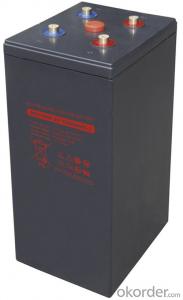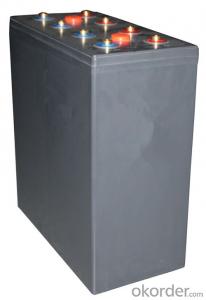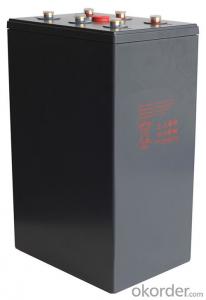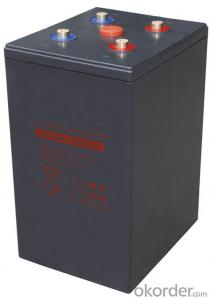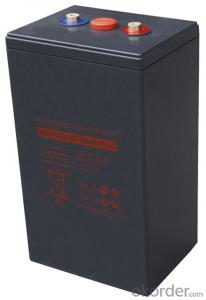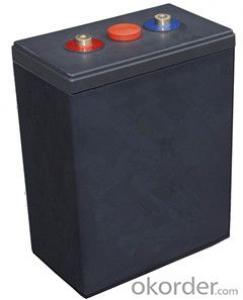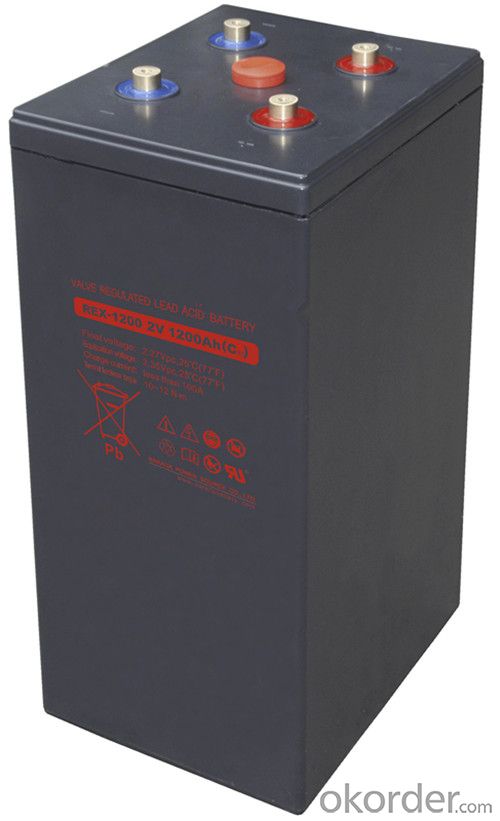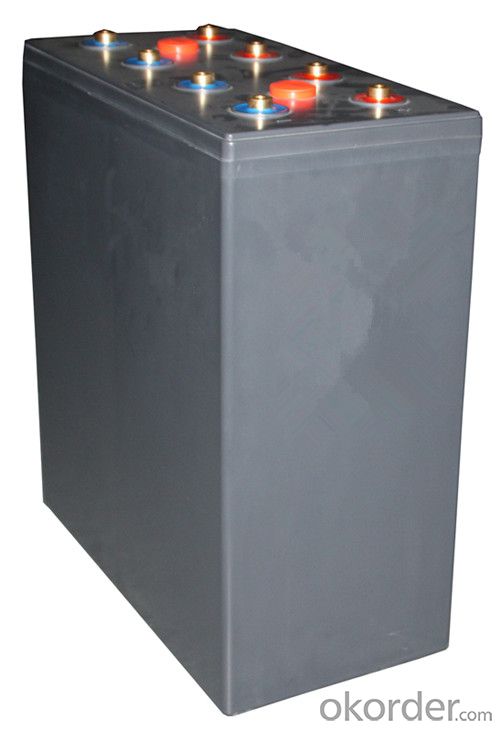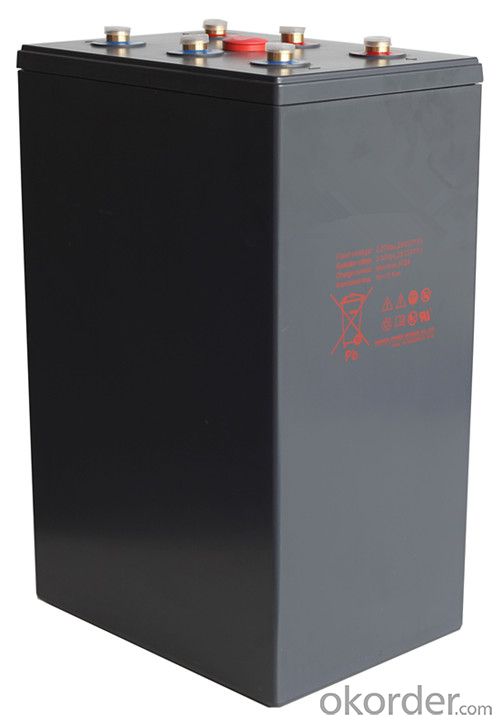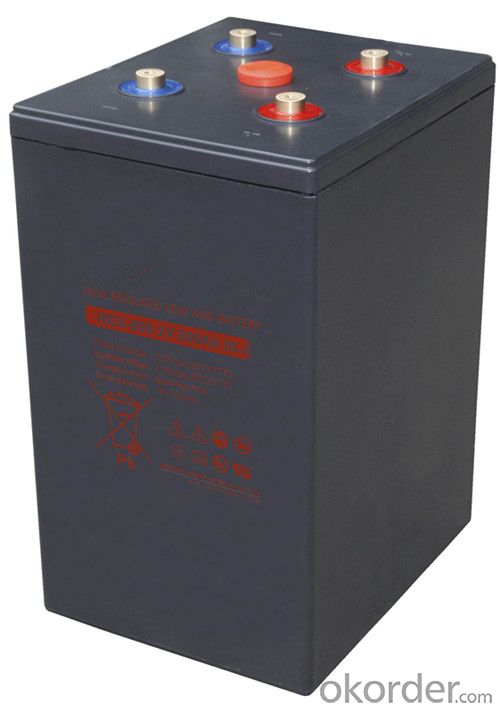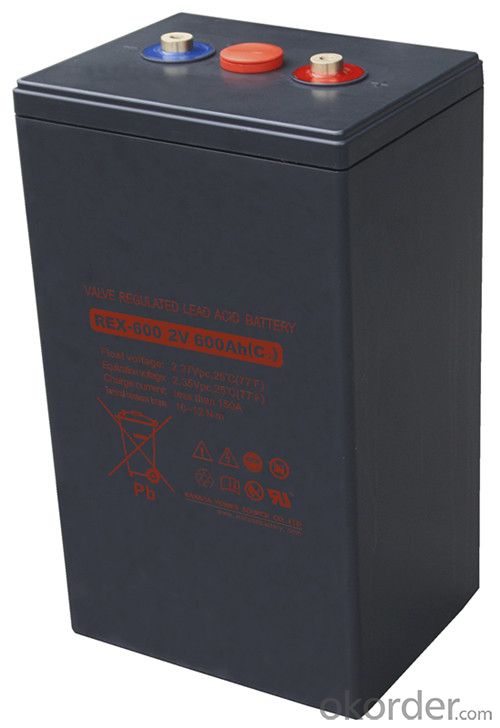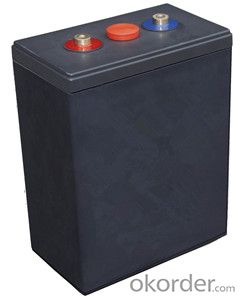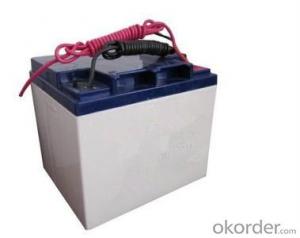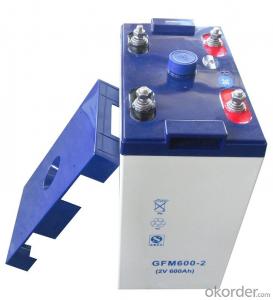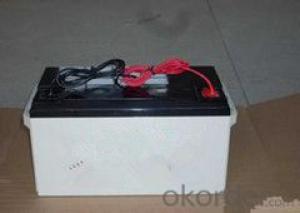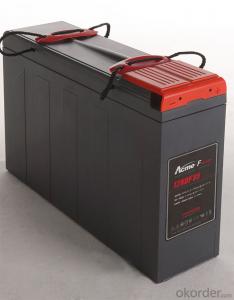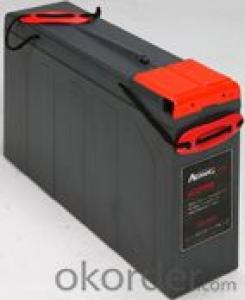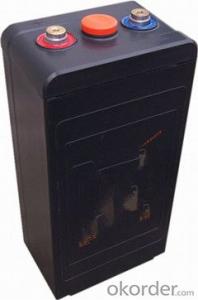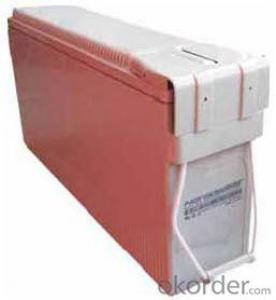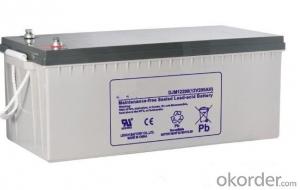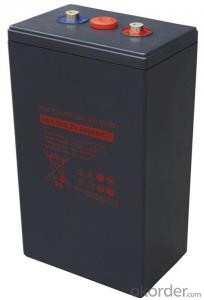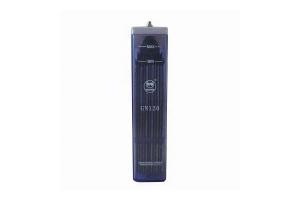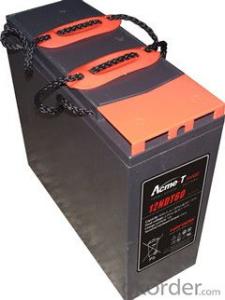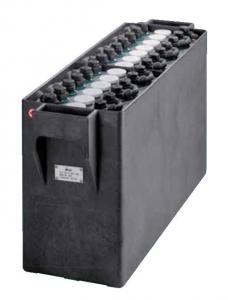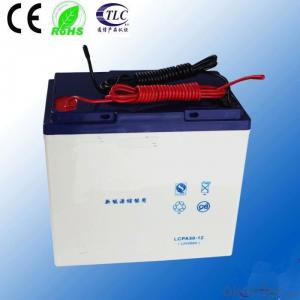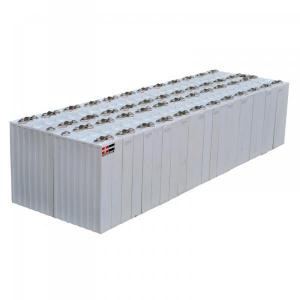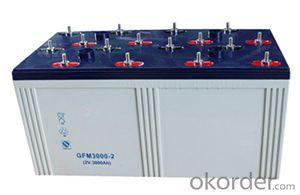Solar Battery REX Series for Solar and Wind Power REX-400
- Loading Port:
- Shanghai
- Payment Terms:
- TT OR LC
- Min Order Qty:
- 1000 unit
- Supply Capability:
- 5000000 unit/month
OKorder Service Pledge
OKorder Financial Service
You Might Also Like
Solar Battery REX Series Introduction
REX battery is designed for Renewable Energy Sources such as Solar and Wind Power. REX protects our environment using Green Technology and benefits the World's Urban and Rural Population by Generating Power Economically from a Clean Source of Energy.
REX is a product developed by our R&D with an " eXtra" in Performance and Life Span.
The REX series batteries are ensured the quality with QA system according to the ISO9001&ISO14001 standard.
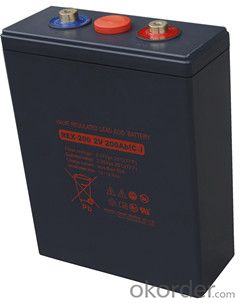
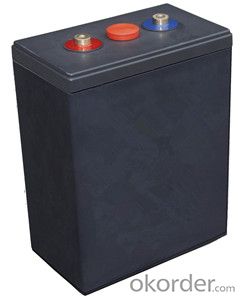
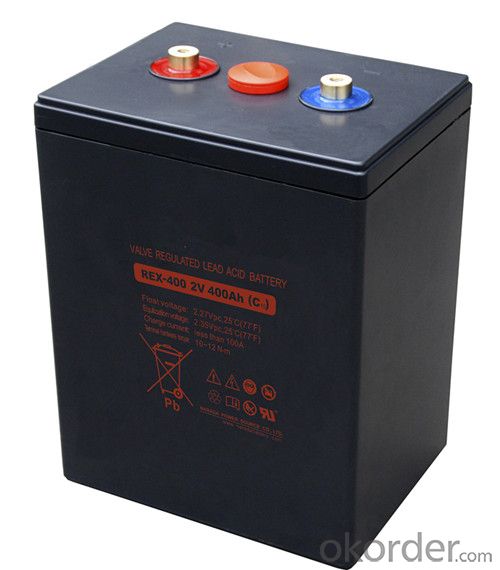
Type: | REX-400 | |
Voltage: | 2V | |
Nominal Capacity: | 400Ah(C10) | 400Ah(10 hours rate:) |
Length: | 227mm | |
Width: | 170mm | |
Height: | 291mm | |
Height with termial: | 303mm | |
Weight: | 32Kg |
Solar Battery REX Series Features and Benefits
Long life design for both cyclic and float applications
Superb security and reliability
Robust design inside and out
Excellent deep discharge recovery fast recharge performance
Extra long back-up times
More cost effective than nearest equivalent
Solar Battery REX Series Compliant Standards
IEC60896-21/22
IEC61427
BS6290 part 4
Telcordia SR4228
Eurobat guide
UL
Manufactured under system ISO9001(TUV) and ISO14001
Solar Battery REX Series Battery Installation Compliant with
EN 50272-2 or local equivalents
Solar Battery REX Series Main Applications
Renewable energy source such as solar and wind power
Telecom exchange and transmission system
Mobile communication system
Power plant and power transformer system
Navigation aid signaling system
Radio and broadcasting station
Emergency lighting system
Other standby, cyclic system
Solar Battery REX Series Installation and Operation
Recommended float charge voltage 2.27V per cell at 25oC
compensation in function of temperature -3mV/oC/cellCycle and equalize charge voltage: 2.35V per cell at 25oC
compensation in function of temperature -5mV/oC/cellCC-CV charge current unlimited, otherwise 150A max. if T>25oC
Preferred operating temperature range 15oC to 25oC(68oF to 77oF)
Maximum operating temperature range -40oC to 50oC(-40oF to 122oF)
A separate battery room is not necessary
Reduced maintenance no water addition required.
Design float life: 20 years at 25oC (77oF)
Solar Battery REX Series Construction
Positive plate --- Reinforced grids in a corrosion-resistant pure lead, high tin, low calcium alloy
Negative plate --- Lead-calcium alloy grid
Separator --- High density microporous glass mat with low electrical resistance
Container & lid --- High strength ABS(HB). Optional flame retardant F V-0 and halogen-free versions available
Electrolyte --- Sulphuric acid with a density of 1.28g/ml absorbed in AGM
Terminal design --- Patented leak resistant seal configuration with brass insert
Safety valve --- Calibrated opening pressure , the valve equipped with flame arrestors for increased operational safety and service life.
FAQ
![]() How long a battery can last?
How long a battery can last?
The service design life of a battery are vary considerably with how it is used, how it is maintained and charged, temperature, and other factors.
![]() Do batteries self-discharge when not in use?
Do batteries self-discharge when not in use?
All batteries, regardless of their chemistry, self-discharge. The rate of self-discharge depends both on the type of battery and the storage temperature the batteries are exposed to. However, for a good estimate, Narada batteries self-discharge approximately 4% per week at 80ĄăF.
![]() What is battery cycle life?
What is battery cycle life?
One cycle of a battery is a discharge from full charge to full discharge and a return to full charge again. The total number of cycles a battery can perform before failure is called its Cycle Life. Moat battery manufacturers will not discus the Cycle Life of their product. Many advertised Deep Cycle batteries have not been tested, or, which is the case with cranking batteries, were never designed for long Cycle Life .
- Q: What is the difference between a maintenance-free battery and a conventional battery?
- Lead-acid battery is composed of positive and negative plates, partitions, shell, electrolyte and wiring pile head and other components, the discharge of the chemical reaction is to rely on positive electrode active substances (lead dioxide and lead) and negative plate active substances (sponge Pure lead) in the electrolyte (dilute sulfuric acid solution) under the action, which plate grid, the traditional battery lead and antimony alloy manufacturing, maintenance-free battery is made of lead calcium alloy, the former with antimony, the latter with calcium, This is the fundamental difference between the two points.
- Q: How to deal with waste batteries?
- The rest of the various types of waste batteries are generally shipped to a special toxic, hazardous landfill, but this approach not only cost too much but also cause waste, because there are many useful raw materials available.
- Q: What are the hazards of battery over discharge?
- Crystalline conductivity is poor, and bulky, will clog the pores of the battery plate, affecting the battery electrolyte penetration and exchange, but also further increase the battery resistance, a long time will prevent the battery power and chemical energy Of the reversible conversion, resulting in poor recovery of the battery charge, the battery was seriously damaged, or even unable to repair until scrapped.
- Q: Maintenance-free battery how to detect it?
- Battery pole Pole terminal has corrosive material without treatment, as long as no loose on it. If the appearance of the corrosive material, the inner surface of the terminal will also be corrosion, resulting in increased resistance, affecting the normal battery charging and discharge, it must be promptly processed.
- Q: What battery does the van use?
- The battery is mainly composed of tube positive plate, negative plate, electrolyte, separator, battery compartment, battery cover, pole, injection liquid cover and so on. The electrode of the exhaust type battery is made of lead and lead oxide, and the electrolyte is an aqueous solution of sulfuric acid. The main advantage is the voltage stability, the price is cheap; the disadvantage is lower than the energy (that is, per kilogram of battery storage power), short life and routine maintenance frequently. Old ordinary battery life of about 2 years, and the need to regularly check the height of the electrolyte and add distilled water. However, with the development of science and technology, lead-acid battery life becomes longer and maintenance is also more simple.
- Q: What is the meaning of the battery above 12v65Ah?
- 12V is said to be the voltage, 65Ah is the current. (A is the unit of current. H is the time unit .1 hours.)
- Q: How should the battery be well maintained?
- So the proposed owners if the vehicle long-term stop, but also 2 to 3 months for the battery for a charge.
- Q: The role of the battery?
- It filled with lead plate filled with sponge lead as a negative electrode, filled with lead dioxide lead dioxide as a positive electrode, and with 22 to 28% dilute sulfuric acid as electrolyte. In the charge, the electrical energy into chemical energy, the discharge of chemical energy and into electrical energy.
- Q: What kind of battery is divided into?
- Ordinary battery: ordinary battery plate is composed of lead and lead oxide, the electrolyte is sulfuric acid aqueous solution. Its main advantage is the voltage stability, the price is cheap.
- Q: How does battery activation work?
- If you are talking about dry batteries, that is, to add sulfuric acid can use the battery (commonly known as water bottles), then it is because the long-term storage so that a high degree of oxidation of the negative board, plus acid will be a high temperature, Low, you can add acid in the pool after the addition of a small current for a long time to charge, you can solve. Generally with 0.05C charge to 3 times can be.
Send your message to us
Solar Battery REX Series for Solar and Wind Power REX-400
- Loading Port:
- Shanghai
- Payment Terms:
- TT OR LC
- Min Order Qty:
- 1000 unit
- Supply Capability:
- 5000000 unit/month
OKorder Service Pledge
OKorder Financial Service
Similar products
Hot products
Hot Searches
Related keywords
